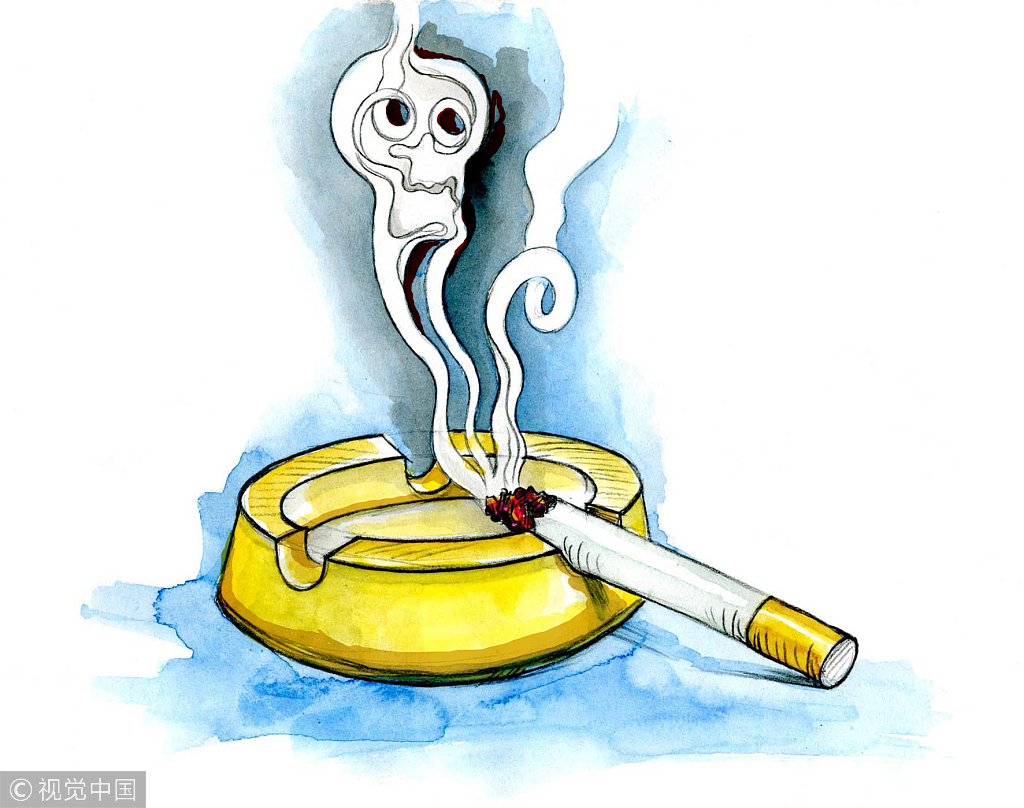
Opinion
16:21, 10-Mar-2019
Healthy China must be smoke-free
Jiang Yuan

Editor's note: Jiang Yuan is former director of the Tobacco Control Office under the Chinese Center for Disease Control and Prevention. The article reflects the author's views, and not necessarily those of CGTN.
The Two Sessions, of the National People's Congress (NPC) and the Chinese People's Political Consultative Conference (CPPCC), provides a key opportunity for annual policy discussion, as democracy China-style demonstrates its vigor and strength to promote social progress on multiple fronts, public health included.
Though I'm retired as Director of Tobacco Control Office, the Chinese Center for Disease Control and Prevention, it is with tremendous satisfaction that I follow proposals during the Two Sessions made by public health professionals, particularly on the front of tobacco control. It's even more heartening to read the whole special page of CPPCC Journal on March 7, 2019, dedicated to the country's tobacco control cause.
To celebrate the third anniversary of the landmark Healthy China 2030 Strategy, I join my colleagues – many of them are China's finest public health experts and all are concerned scientists – to convey a key message to the nation: Healthy China must be smoke-free. Under this overarching theme, leading journalists and health workers use the platform of the CPPCC Journal to present some of the most important dynamics that are shaping the tobacco control debate in China at this very moment.
As I give my full support to my visionary colleagues who share key insights on China's smoke-free journey, I'd like to reinforce just a couple of key points.
Firstly, China's basic health law, now under review, must include strong and effective tobacco control clauses compliant with the World Health Organization Framework Convention on Tobacco Control (WHO FCTC), which was ratified by the National People's Congress back in 2005. However, over the years, the internalization of the international tobacco control law in China has yet to win its uphill battle.

Smoking is unhealthy. /VCG Photo
Smoking is unhealthy. /VCG Photo
Now, the draft of the Basic Healthcare and Health Promotion Law, referred to as China's basic health law has passed its second reading. While I laud the inclusion of tobacco control clauses in the draft, it's the opinion of many colleagues and myself that the text could be so much stronger and more effective if a complete smoking ban is enacted to cover all indoor public places.
Evidence-based science has proven that the enforcement of a smoking ban in public places helps reduce the harm of second-hand smoke. It offers one of the most effective ways to protect health and produces immediate results. Many cities across China have taken the initiative to enact such indoor smoking ban, and there is every reason for the country's upcoming basic health law to provide much-needed support to encourage the promising local developments and turn the many sub-national success stories into meaningful national momentum.
Secondly, when it comes to health promotion, I join the call by many colleagues to print graphical health warnings on any tobacco product. We believe the graphical health warnings to be one of the most effective ways to discourage smoking. Moreover, the graphical health warnings also provide a powerful tool to discourage any so-called “social smoking behavior” in the forms of giving cigarettes as a gift or offering cigarettes to others as a friendly gesture.
Progressive minds have long called for transforming outmoded habits and customs. The so-called “social smoking behavior” is among the first things to be obsoleted in Healthy China in the foreseeable future. Moreover, if exported Chinese tobacco products can have graphical health warnings printed on the packaging, there's every reason for such warnings to be present to help covey the message to Chinese compatriots at home.
To conclude, I commend the tobacco control proposals raised during this year's Two Sessions and I thank CPPCC Journal for dedicating a whole special page to summarize all the key messaging.
(If you want to contribute and have specific expertise, please contact us at opinions@cgtn.com.)

SITEMAP
Copyright © 2018 CGTN. Beijing ICP prepared NO.16065310-3
Copyright © 2018 CGTN. Beijing ICP prepared NO.16065310-3